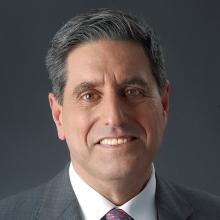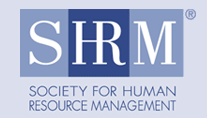Has Agile Performance Management Replaced the Annual Review? The Realities and the Myths Examined
Universally, the thorn in nearly every manager's and direct reports' side is the dreaded formal annual performance review. Based on the widely accepted notion that performance management is broken, organizations have been rethinking the process. To fix the mandatory yearly review, companies have put in place more frequent conversations. Some surveys indicate that 20% of Fortune 1000 companies have moved away from the traditional yearly review and rating system to the new, more frequent process and not rating scale. These firms have received widespread publicity in the press and professional Human Resources journals.
This fast-paced session focuses on how organizations have redesigned this process to make it useful, efficient and meaningful for employees and their managers. We will explore how companies went about the process and the benefits reaped as a result. What are the practices that work and are not working? Have companies eliminated annual ratings? What are the concerns that remain, i.e. compensation, bonus, merit decisions and employees who are not performing to expectations? Learn why this process has encountered issues in different cultural settings.
Learning Objectives:
Learn the four critical activities to have in place to initiate the transformation of performance management.
Learn how to move from feedback to feed-forward.
Determine who needs to have ownership and accountability for the process.
Explore the issues that other organizations have faced with agile performance management.
Learn how to address compensation and promotions in the absence of reviews.
Understand why this is (and should) not be a corporate culture change activity.
Understand why conversations and coaching are not working and what needs to be in place.
David S. Cohen

Dr. David S Cohen, Ed. D. has a vision: organizations that thrive by living their values in good times and especially VUCA times. David's first career was in elementary and high school education, where he built a reputation for building school communities based on purpose and social responsibility. Thirty-three years ago, David transitioned to corporate consulting. As a consultant, David earned a reputation as a contrarian consultant because he does not always follow what is popular in his chosen field. David works with leaders helping them understand what is and what is not necessary to build an active and positive organization. He helps leaders' step into life's challenges, inspiring them to create a sustained approach through a values-based focus, resulting in better business results. David has had the privilege of partnering with firms across five continents and all business sectors. Additionally, he has worked with governments, from the local to the federal levels, and not-for-profits.
He has taught at Queens University School of Labour Relations and the executive education program at the Schulich School of Business, York University. Currently, he teaches organizational development at Durham College. David earned his doctorate from Boston University in Humanistic and Behavioural Studies. During that time, he also completed independent studies at the Harvard School of Education, where he was a teaching assistant.
David is a keynote speaker, educator, disruptor, facilitator, team builder, and executive coach. He has authored two books and numerous articles in professional journals.
- The Talent Edge: A Behavioral Approach to Hiring, Developing, and Keeping Top Performers (John Wiley and Sons, August 2001)
- Inside the Box: Leading With Corporate Values to Drive Sustained Business Success (Jossey-Bass September 2006)
When David is not travelling, he is hanging out with his five grandchildren, when possible, attending Toronto Raptor's games, or relaxing with family and friends.
David is honored to be recognized by the GlobalGurus30 as one of the top 30 GlobalGurus in Organizational Culture.
Find Sessions by Day
Find Sessions by Speaker
Find Sessions by Topic
- Select Track
- Compensation & Benefits
- Culture
- Employment Law & Regulations
- Global HR
- HR Department of One
- HR Technology and Data Analytics
- Inclusion & Diversity
- Leadership & Personal Growth
- Org. Effectiveness & Strategic Planning
- People & Talent Management
Find Sessions by Credit Type
- Select Credit Type
 SHRM PDCs
SHRM PDCs
Find Sessions by Competency
- Select Competency
- Business Acumen
- Communication
- Consultation
- Critical Evaluation
- Ethical Practice
- Global & Cultural Effectiveness
- HR Expertise
- Leadership & Navigation
- Relationship Management
Find Sessions by Intended Audience
- Select Intended Audience
- Early Career
- Mid-Level
- Senior-Level

